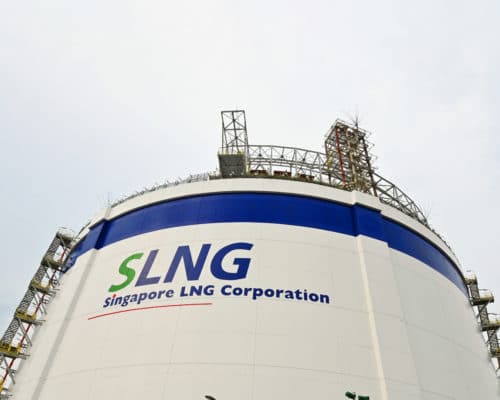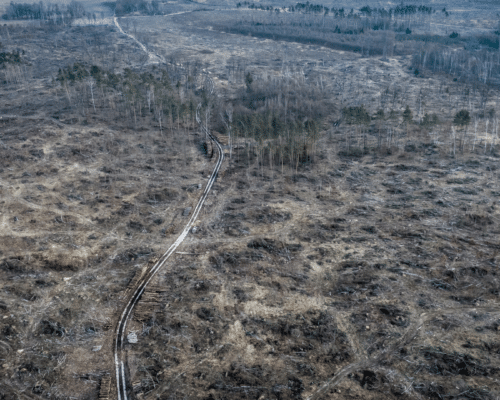Prime Minister Ishiba’s Opportunity to Lead Asia’s Energy Transition [Op-Ed]
10 October 2024 – by Gerry Arances and Zenzi Suhadi
As new Japanese Prime Minister Shigeru Ishiba takes office, he is uniquely positioned to support the urgently needed transition to clean energy across Southeast Asia. This week, when Ishiba plans to travel to Laos for the ASEAN Summit, we hope he will recognise Japan’s historic obligation to speed the transition away from fossil fuels as one of the countries most responsible for the crisis.
This could not come a moment too soon. Climate-change-induced natural disasters are escalating. A powerful typhoon is lashing the northern Philippines and Taiwan. This is on the heels of Super Typhoon Yagi, which devastated communities and killed at least 16 people in the Philippines, Vietnam and China. It followed an extreme heatwave that swept across Asia last spring.
Without the rapid transition to renewable energy, climate catastrophes will only increase, and there will be more unnecessary death and destruction. Yet, instead of providing the climate solutions we need, Japan has wasted precious time and resources peddling dirty, risky, expensive technologies that will expand and prolong the use of fossil fuels.
Thankfully, newly elected Prime Minister Ishiba understands the urgency of the climate crisis and the need for strong action. During his campaign to win the leadership of the Liberal Democratic Party, he emphasised the importance of maximising the full potential of renewable energy and energy conservation. He has also expressed concern over Japan’s excessive spending on fossil fuel imports, which depletes its national wealth, and the importance of developing energy self-sufficiency. Currently, Japan depends on fossil fuels for more than 80% of its primary energy supply, the highest level among the G7 countries. In fiscal year 2023, Japan spent over 26 trillion yen on minerals fuels such as LNG.
In contrast, former Japanese leader Fumio Kishida spent considerable diplomatic, political and economic capital backing the Asia Zero Emission Community initiative, which would prolong the use of fossil fuels across the region and exacerbate the climate crisis. This initiative relies on fossil fuel-based technologies, including liquified natural gas (LNG), ammonia co-firing at coal power plants, hydrogen blending at gas plants and carbon capture and storage (CCS).
In the Philippines, for example, Japan’s drive to expand gas and LNG harms communities, destroys the environment and escalates electricity costs. The Japan Bank for International Cooperation (JBIC) signed a memorandum of understanding with San Miguel Corporation, Aboitiz Power Corporation and Metro Pacific Investment Corporation for programmes like LNG operations in the Philippines. Fishermen complained that JBIC violated its own social and environmental safeguards by financing the Philippines’ first operational LNG import terminal. Operations at the terminal are proceeding despite this internal investigation.
Japanese and Indonesian companies have signed numerous memorandums of understanding to develop fossil fuel-based technology projects in Indonesia. These initiatives were spearheaded by the Japan-led greenwashing initiative known as the Asia Zero Emissions Community (AZEC), which claims to reduce greenhouse gas emissions while prolonging Asia’s dependence on fossil fuels. We hope Prime Minister Ishiba will see that these projects threaten environmental and community safety in Indonesia and may lead to further land-grabbing and deforestation.
Similarly, 330 kilometres off the coast of Vietnam, the Block B gas field development is underway. It received more than $832 million in financing from Japanese institutions, approximately half of which came from JBIC. In northern Vietnam, Tokyo Gas is developing a 1,500 MW LNG power plant. These fossil fuel developments will undermine the country’s commitment to net zero emissions by 2050 and are happening while Vietnamese civil society suffocates under state suppression, which has unjustly jailed several climate defenders.
Prime Minister Ishiba is taking up the reins of Japan’s leadership during intense political, economic and environmental challenges. Manoeuvring through these crises will require clear thinking and courageous leadership with the best interests of the people of Japan, Asia, and the world in mind.
At the upcoming ASEAN Summit, which has a focus on climate change and natural disasters, we urge the Ishiba administration to stop promoting fossil-based technologies in our countries and acknowledge the havoc fossil fuels have wreaked on people and ecosystems throughout the region. Southeast Asia has great potential for domestic renewable energy that will also help us attain energy security. Building expensive fossil fuel infrastructures continues to put our energy self-sufficiency at risk.
We hope Prime Minister Ishiba will stop ploughing billions of dollars into dirty energy projects that will further harm communities and ecosystems and block the urgently needed shift to renewable energy. We call on this new administration to correct the wrong-headed policies of the past and use Japan’s influence to speed the development of renewable energy solutions across the region. The people of the Philippines, Indonesia, and the rest of Southeast Asia cannot afford Japan to continue derailing our energy transition.
Gerry Arances is Executive Director at the Center for Energy, Ecology and Development (CEED) based in the Philippines, where he advances energy transformation, ecological integrity, and people-centered development. He is also a convener of the Power for People Coalition and the Withdraw from Coal, Protect VIP, and #WagGas campaigns.
Zenzi Suhadi is the Executive Director of WALHI or Friends of the Earth Indonesia. Zenzi is a field biologist and community organiser advocating for ecological justice and economic equity while implementing Indigenous stewardship practices to protect, and model integrated earth care and climate solutions.
Center for Energy, Ecology, and Development (CEED) is a non-governmental think-do institution in the Philippines focusing on energy, the environment, and development. CEED’s vision is for a sustainable, accessible, and people-oriented energy sector in the Philippines. CEED’s work is based on three guiding principles: transformative energy, ecological justice, and people-centred development. CEED conducts research and advocacy and partners with communities to promote an energy and development path that is ecologically just and people-centred.
WALHI Wahana Lingkungan Hidup Indonesia (WALHI), or the Indonesian Forum for the Environment, is Indonesia’s largest environmental advocacy organisation. Founded in 1980, WALHI comprises over 479 non-governmental organisations (NGOs) and 156 individuals across 27 of Indonesia’s 31 provinces. WALHI’s work includes protecting the environment and local communities from injustice; promoting the right to the environment and human rights; addressing issues such as deforestation, agrarian conflict, climate change, and disaster risk management; supporting the capacity of communities to manage natural environments and reduce emissions; and increasing the economic value of products from community-based areas.
Disclaimer: The views and opinions expressed in this article are those of the author and do not necessarily reflect the official policy or position of Energy Tracker Asia.








